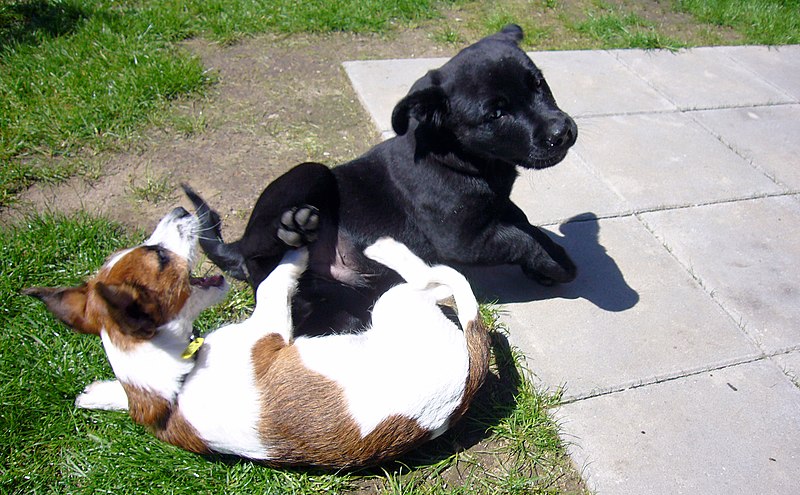Getting a four-legged fur baby can be one of life’s most exciting and emotional moments. To witness the cute little ball of fur walking around your home and trying to fit in can be one of the most beautiful experiences of a person’s lifetime. But in order to enjoy a happy life together with your dog, it is important to let your dog interact with other dogs and humans. For instance, when you visit a registered and classified NY breeder, you might notice that some dogs are calm and friendly while there are others who show signs of aggression and fear towards other dogs and human beings. Hence the importance of teaching them to interact with various situations, people, animals, and objects. This will be advantageous to you the dog master as visits to the veterinary office or outdoor walking experiences will be now less stressful.
Why should dogs be socialized at an early age?
You might have already heard that puppies need to be socialized. Veterinarians and dog trainers recommend that dogs should be socialized from an early age, as it is easier to socialize and train puppies then. The first three months of a puppy’s life are important for social development because they are more inclined to be social than they understand fear in general. Puppies can handle new experiences between 3 to 12 weeks of age as they are very curious at this stage. And after that, they become cautious about things that they haven’t encountered before. Although older dogs can be socialized and trained too, it can be more frustrating, time-consuming, and a scary experience for the dog than it would be for a puppy.
What is the appropriate age to socialize puppies?
A lot of new puppy owners have presumptions that their dogs will not have any behavioral or training issues as they are behaving “just fine” at the moment. A lot of times certified veterinarians hear things like “maybe when she is older” or “I don’t think she’ll need that.” The fact remains that statements like this result in an unruly and irrational dog for the owner’s ignorance or procrastination. The reason behind this is – from 6 to 16 weeks, puppies go through a critical socialization period which dramatically impacts his or her social behavior for the rest of their lives. It is during this specific period that the brains of these tiny furballs are like tiny sponges that soak up every experience they encounter and are filing it away for their future. According to some experts, this incredible period starts as early as 12 weeks. According to much evidence, the socialization window varies differently for different breeds and the average socialization age of puppies would start at 16 weeks.
What happens when you don’t socialize a puppy at the appropriate time?
For a rightly socialized puppy who has been socialized within the above-mentioned age, witnessing certain things as part of the day seems like a normal deal. For instance, kids on bicycles around the neighborhood, people wearing shiny raincoats, wailing babies, lawnmowers, people with weird hats, and people carrying huge bags with wheels. For a normally well-socialized puppy, these are part and parcel of daily life. But once she crosses 16 weeks, these same situations will be met with suspicion if not trained well. The same things which were accepted nicely before with a cheerful curiosity and a happily wagging tail will be now assumed to be dangerous and scary. So the same people with funny umbrellas and raincoats or kids on bicycles will be automatically assumed to be terrifying monsters who should be barked at or should be run away from. These everyday objects or unfamiliar people can scare away adult dogs who are not socialized well. This can be the end of poor socialization. Not a pretty sight, we bet!
Socializing your older dog
Although there is no expiration date in socializing your dogs, both puppies and older dogs can benefit from good techniques of socialization. If you have got a dog who is no longer a puppy or the crucial age of your pup is already gone, you can still help them, to associate with situations in a positive way. Associating older dogs with fearful situations with a positive outlook can be a very slow process. Start with it by reintroducing her to new sounds, smells, and sights under careful supervision and emphasize the positive form of situations and things with treats and praises. This will help her to overcome the fears or hesitations related to a situation or thing. However, it should be done within the strict supervision of an animal behaviorist or certified dog trainer.

